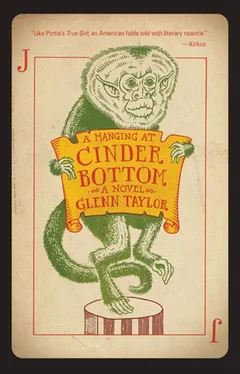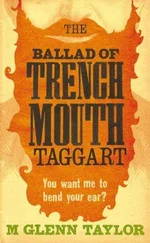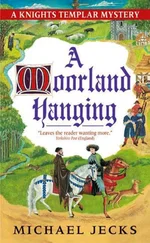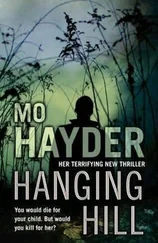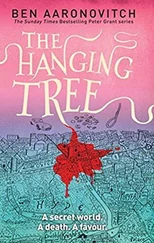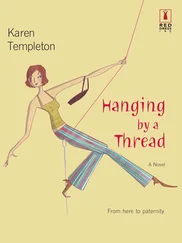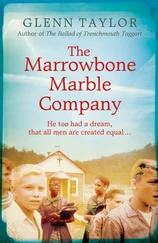He shook it off and took stock of himself in order that he might be prepared for all that could come his way. Vest pockets, hidden pockets. Small money, big money. Nail-dagger, spur-trigger, lock-picker, nut-stabber. This time, his ritual worked. He shot his cuffs. No man could best Abe Baach.
At eight AM, he transacted at the telegraph office, sending coded word to Ben Moon and Tony Thumbs both, the latter with an indication of possible future travel.
At a quarter past eight, he stood out front of the Alhambra Hotel. Its face had stood the test of weather. A man was paid good money to once a day scrub down its bricks and wash its windows. It showed.
Railroad Avenue was peopled thick farther on at the station, but it was quiet at his present juncture. He’d half expected armed doormen on the hotel stairs. He stepped around the side of the building to see about the entrance there. Not a soul was guarding it. The awning under which he’d bumped Floyd Staples seven years prior still hung, bleached by sun and striped by dirty rain. A scabied cat scavenged a wad of newspaper spilling fish bones. Abe proceeded, aiming to see about the building’s rear. He spoke to the cat as he passed, holding his hand low for a sniff, but the cat showed its teeth. It sounded a hiss and then a low rumble.
No man stood at the building’s backside. It was only the double-bricked husk of the longest game of poker in the land.
He returned to the front of the building and opened the big door.
The lobby shined in straight dark lacquer. Abe nodded to the men at the tall front desk. The seated man was hatless and bald. Two others leaned on wide fluted columns, and asleep between their polished shoes was a long-haired dog.
“Afternoon,” Abe said, though he knew it to be morning. He walked over and held out his hand. “Abe Baach,” he said.
The seated bald man swallowed and sat back and squinted. “You’ll have to pardon me.” He patted his shirt pocket. “I don’t have my spectacles.”
Abe looked at him closer. “Mr. Talbert?” he asked.
The man took up his glasses and knocked over a blue-glass toothpick holder in the shape of an egg. “Yes?” he said.
“What happened to your hair?”
The man got his glasses on. “I can’t hardly believe what’s in front of me,” he said. “Norman, pinch my arm.” He held it out but neither man moved. Then he felt at the top of his head and said, “Would you believe me that I lost all that hair at once a few months back?” which was neither the entire nor the truthful story.
“Is that right?” Abe said.
“God’s word.” He raised his right hand. Then he shook his head. “Abe Baach,” he said. “I had hoped someone was foolin me, comin in here proclaiming themselves as such.”
Abe said, “April Fools’ has come and gone Mr. Talbert.”
The dog on the floor sneezed and moaned and reshut its eyes. The other men continued to lean — neither had bothered to so much as stand straight when Abe had offered handshake. They made their eyes as lifeless as they could and took up a spilled toothpick each and chewed.
Abe looked at one and then the other and smiled. It put them off enough — one checked his timepiece and the other walked to the front window and pushed aside a shear.
“These two is new,” Talbert said.
That much was clear to Abe when he introduced himself. He’d watched their faces for tells, but his name rung neither of their bells. “They are young yet,” he said. He regarded Talbert, who had always worn a kind face.
The dog farted.
Abe and Talbert commenced straightaway at laughing. The other two did not.
Abe frowned at the stench. He asked, “You boys feedin this animal frog legs?”
He clasped his hands in front so they’d know two things. First, that he would stand and wait for what he sought, and second, that he wasn’t looking to do anything quick and deceitful. He said, “I’m here to see Mr. Trent.”
The man at the window laughed then, for though he was new, he had gathered that Henry Trent was not one to take unannounced visitors at early morning hours.
Abe recognized the laugh as dismissive rather than jovial. It was a suitable sound when made by an older, smarter man. But when emitted by a young fool such as this one, it was lamentable at best. He thought to himself, Keep your temper , and he did. He kept his stance too, but turned his neck and shoulders to regard the man at the window, who tried his best to wear a hard look. Abe smiled at him still.
Talbert stood and leaned forward over the desk. He said, “I always thought you was a nice fella, Kid. But last I seen you, you knocked me to the ground and ran out of here in a hail of gunfire.”
“And I am sorry for knocking you down Talbert,” Abe said.
“I don’t know what they’re liable to do to you.” Talbert thought. He whispered, “Rutherford’s in there with him at the Oak Slab.”
Abe watched Talbert’s eyes. Through the dusty lens of his spectacles, they were genuine. He said, “My brother has died and I have peaceable intentions.” He stepped back and announced that he would go ahead and save them the trouble, and with slow and delicate touch of finger and thumb, he withdrew his spur-trigger pistol and handed it grip-first to Talbert, whom he proclaimed trustworthy and wise.
Talbert admired the little gun and put it in a locked drawer. He rubbed at the back of his neck. Inside he was blank, confused as to his allegiances in life. “Well,” he said. “I suppose we ought to go tell him you’re here.” And he stood and told the two young ones to stay where they were.
He led Abe past the grand stage door and into the main card room. Once there, he pointed back to the lobby and said, “Those two are worthless as chicken shit on a pump handle.”
The card room was quiet. Four men sat at a middle table hunched and tired. On the left wall, a bartender stood rigid behind the counter, hands crossed behind him.
An electric bulb hung over the bar, and more hung high above the tables, their cords tacked to the black tin ceiling. These were the only electric lamps in Keystone. Trent had said in 1902 that he’d have electric inside a decade, and seven years later, the lines lit up. They pulled straight from the generators of the Northfork Mining Company, where circuit judge Rufus Beavers sat on the board of trustees. Beavers was newly widowed and had lately become a more-than-regular patron of the Alhambra Hotel. He was at the Oak Slab most nights. He kept a third-floor room on permanent. His brother Harold was known to take over the room on his twice-a-year visits home, throwing big money around and nightly taking two or three women upstairs.
The hot orange filaments hummed. Abe watched them dance inside the glass, alive. He’d once told Jake that he’d have electric lamps at A. L. Baach & Sons by 1910. He’d wrongly thought he’d be running the Bottom by then.
On the way to Trent’s office door, Talbert tipped his head at the barkeep and whispered, “Nothing between that one’s ears but cotton.”
A fat man sat on a stool in front of the door to Trent’s office. He lowered his halved McDowell Times and bit a long stretch of dried beef. “Who’s this?” he said to Talbert.
“This is Abe Baach, the Keystone Kid.” And with that, Talbert made his customary tap on the door, told Abe to stay put, and went through.
The fat man said he didn’t believe that to be the truth, and in the same sentence asked if he’d been frisked, but Talbert had already shut the door.
“I have been thoroughly frisked,” Abe said. “I didn’t get your name.”
“Munchy,” the man said. “I’m police.” He pulled back his jacket and showed his badge. He aimed his beef at Abe’s scar. “What happened to your face?”
Читать дальше
Конец ознакомительного отрывка
Купить книгу
